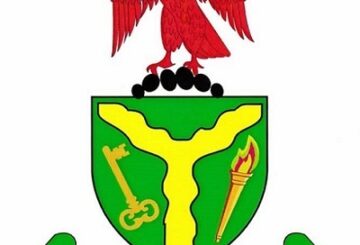 The Abuja Chamber of Commerce and Industry has commended the decision of President Muhammadu Buhari to sign the African continental Free Trade Agreement, describing the move as good for the Nigerian economy.
The Abuja Chamber of Commerce and Industry has commended the decision of President Muhammadu Buhari to sign the African continental Free Trade Agreement, describing the move as good for the Nigerian economy.
The President of the chamber, Adetokunbo Kayode, said this in a statement issued on Thursday in Abuja.
Kayode said the Organised Private Sector was in support of the agreement in view of its immense benefit to the Nigerian economy and its competitive market.
He also maintained that by signing the AfCFTA, the Nigerian economy was not in any way exposed to any economic or social hazards since the pact had all the necessary safeguards against smuggling, dumping and other risks.
“I want to commend the Federal Government for the decision to sign this agreement as was pushed by myself, the Organised Private Sector and recommended by the presidential committee. What is important to us in the OPS is the need to immediately log into the initiative.”
He said, “The AfCFTA is aimed at integrating the whole continent into the two billion population market. This will expand trade.
“The agreement covers trade in goods, services, investment, and rules and procedures on dispute settlement, including a range of provisions to facilitate trade, reduce transaction costs, provide exceptions, flexibilities and safeguards for vulnerable groups and countries in challenging circumstances.
“These are opportunities we can easily access. We don’t need to hesitate. The issues raised by the government that AfCFTA will not help the country because of infrastructure; fear of being an avenue for the dumping of goods and leading to the death of local industries, did not add up.
“These are challenges that we can easily surmount if we put our arts together. In any case, there are several instruments of negotiations in the agreement, so we have to move along with the rest of the world.”
Indications emerged from the Presidency on Wednesday that the President would sign the Phase One of the African Continental Free Trade Area Agreement at the Mid-Year Coordination Meeting of the African Union and 12th Extraordinary Summit on AfCFTA.
The President’s decision was reported to have followed his approval of the recommendations of the Presidential Committee on the Impact and Readiness Assessment of the AfCFTA agreement.
This was contained in a statement signed by Buhari’s spokesman, Garba Shehu.
The Presidency stated that the meeting would come up in Niamey, Niger Republic, in a few days’ time.
“A country that signs the first level will then go into country-level discussions leading to treaties after safeguards are agreed to.
“In accepting the reports as submitted, President Buhari made it clear that the Nigerian government will be seeking to include terms that engender the development of policies that promote African production, among other benefits.”
Buhari noted, “Africa, therefore, needs not only a trade policy but also a continental manufacturing agenda. Our vision for intra-African trade is for the free movement of ‘made in Africa goods.’ That is, goods and services made locally with dominant African content in terms of raw materials and value addition.
“If we allow unbridled imports to continue, it will dominate our trade. The implication of this is that coastal importing nations will prosper while landlocked nations will continue to suffer and depend on aid.”


